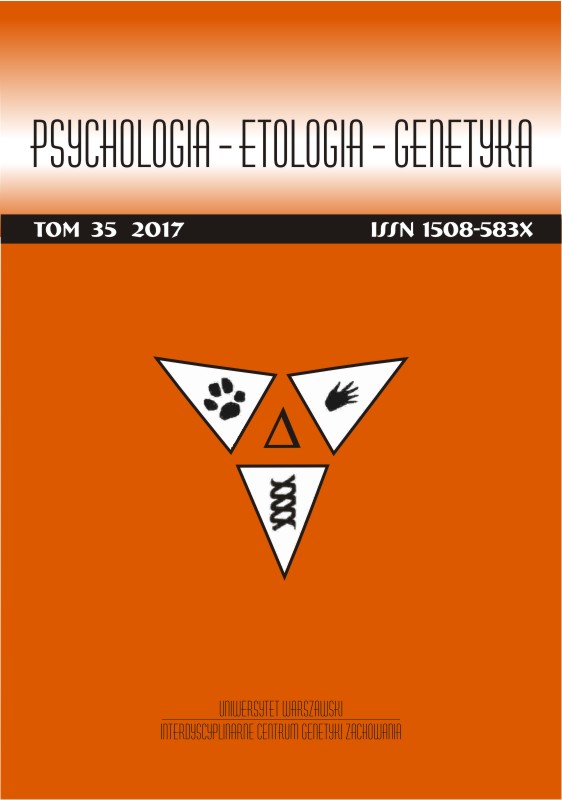Stary problem w nowym ujęciu: związki między inteligencją i samoregulacją w uczeniu się a osiągnięciami w nauce szkolnej
An old problem in a new perspective: Connections between intelligence, self-regulation in learning and school achievements
Author(s): Dominika Świerżewska-Chadaj, Maria LedzińskaSubject(s): Social Sciences, Psychology
Published by: Wydawnictwo Naukowe Scholar Sp. z o.o.
Keywords: Intelligence;metacognition;self-regulatory control;strategic control type;school achievements
Summary/Abstract: The aim of this survey is to understand connections between intelligence, self-regulation in learning and school achievements. It is a part of larger project, researching the impact of two kinds of intelligence: cognitive and emotional, on school achievements and their role in shaping student’s activities, manifested in learning and social functioning. In this article we present selected findings and we concentrate on connections between cognitive intelligence, strategic control type and school achievements. The research was inspired by the lack of unequivocal results regarding the connections between cognitive intelligence, self-regulation in learning and school grades. We refer to Robert Cantwell’s self-regulation in learning theory, which distinguishes adaptive (flexible) and non-adaptive control. Adapting learning styles to the situation is the indicator of the former control style, the latter is expressed in inflexible and irresolute behaviours. The survey was conducted among 229 final grade students (97 women, 130 men, 2 subjects didn’t mark their sex), at four Warsaw secondary schools. Raven’s Progressive Matrices were used to measure fluid intelligence. We measured strategic control type with Strategic Flexibility Questionnaire. School achievement was measured by last year’s average grade declared by the students. Data was analysed by correlation, regression and moderation analysis. The results confirm a positive correlation between school achievements measured with an average grade and level of cognitive intelligence what is consistent with previous findings. The results also confirm a negative correlation between school achievements and inflexible and irresolute self-regulation strategies in learning. Adaptive control of learning was positively correlated with school grades only on a trend level. It turned out as well that the interaction of intellectual potential and irresolute control is significantly impacting educational achievement. In case of students with low intellectual potential, irresolute control style lowers the grades more than among the pupils with a higher level of cognitive intelligence.
Journal: Psychologia-Etologia-Genetyka
- Issue Year: 2017
- Issue No: 35
- Page Range: 45-68
- Page Count: 24
- Language: Polish
- Content File-PDF

